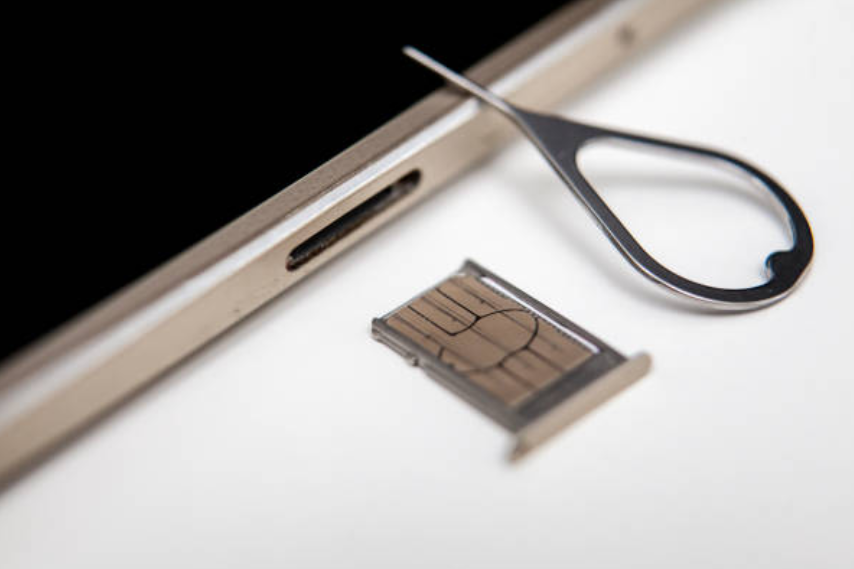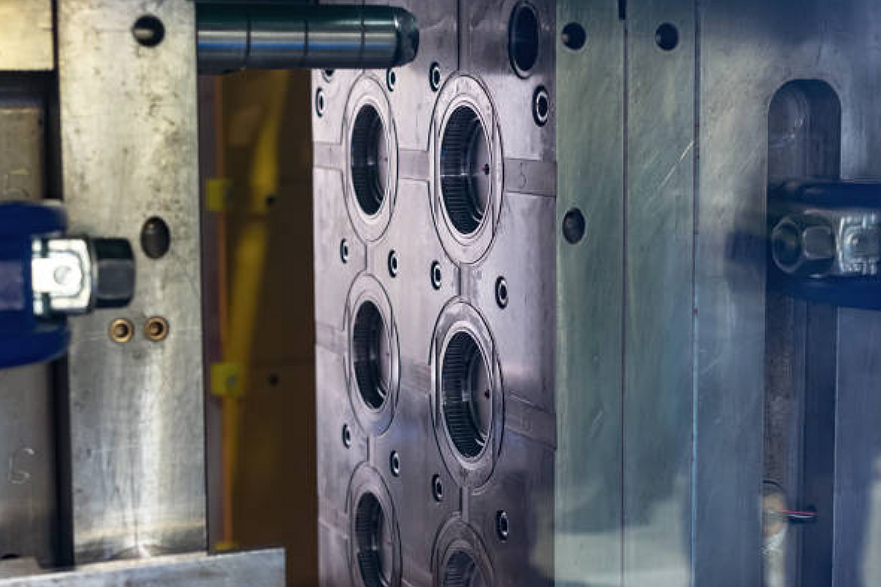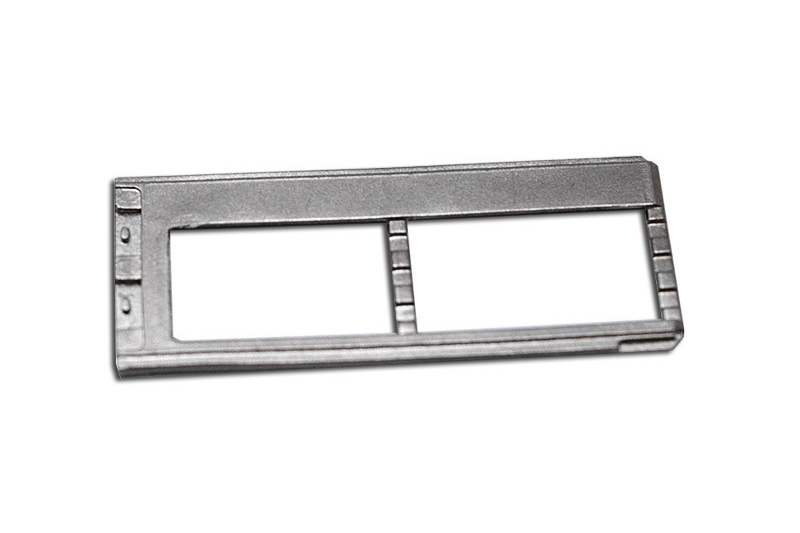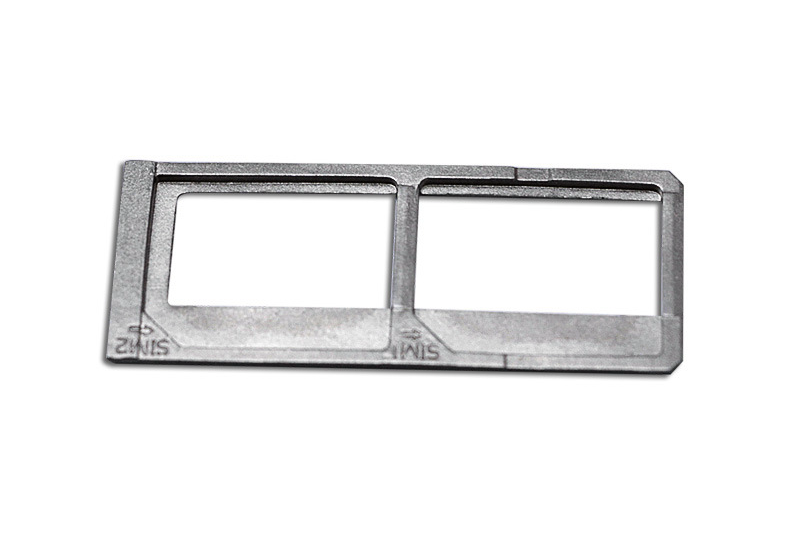Precision and Efficiency: Producing Custom SIM Card Trays through MIM
In the fast-paced world of electronics, where connectivity is vital, the humble SIM card tray plays a crucial role. Ensuring a secure and reliable connection between the SIM card and the device, SIM card trays have evolved to meet the demands of modern technology. One manufacturing process that has revolutionized the production of these trays is metal injection molding (MIM). By leveraging the advantages of MIM, manufacturers can create custom SIM card trays that meet the highest standards of quality, precision, and durability. In this comprehensive guide, we will delve into the MIM process, explore its benefits in custom SIM card tray manufacturing, discuss essential considerations, highlight real-world examples, and touch upon future trends in the industry. We will also introduce you to Neway, a leading metal injection molding company renowned for its expertise in producing SIM trays.

Metal Injection Molding (MIM) Process
To understand the power of MIM, it's vital to grasp the fundamentals of the process. Metal injection molding combines the best of two worlds: plastic injection molding and traditional powder metallurgy.
Create MIM Mold
It begins with preparing a mold that will shape the SIM card tray. Then, prepare feedstock. This feedstock is a unique blend of fine metal powder and a binder. It serves as the building blocks for the creation of the tray.
Injection Molding
The next step involves the injection molding process. The MIM machine injects the feedstock into the mold under high pressure. This intricate process ensures that the desired shape and form of the SIM card tray are achieved. Once the tray is molded, it undergoes a series of post-processing steps to refine its properties and enhance its functionality.

Debinding and Sintering
The first step in the post-processing phase is debinding. This process removes the binder from the tray, leaving the metal powder in the desired shape behind. After debinding, the tray enters the sintering stage. Sintering involves subjecting the tray to high temperatures, causing the metal powder particles to bond. This results in a dense and robust final product.

Surface Finishing
The tray undergoes various finishing processes such as CNC machining, polishing, PVD, and powder coating to achieve the desired surface finish and functional features.
Advantages of Using MIM for Custom SIM Card Tray Manufacturing
Design Flexibility and Complexity
One critical advantage of MIM is its excellent design freedom. With MIM, manufacturers can create custom SIM card trays with intricate designs and complex geometries that were once deemed challenging or expensive. The flexibility of MIM enables designers to incorporate features such as undercuts, threads, and thin walls into their designs, resulting in SIM trays that perfectly fit the requirements of modern electronic devices.
Cost-effectiveness
Cost is always a consideration in manufacturing, and MIM provides a competitive edge. By combining the efficiency of injection molding with the versatility of metalworking, MIM eliminates the need for additional machining operations, ultimately reducing production costs and lead times. Additionally, MIM allows for using less material than traditional metalworking methods, further contributing to cost savings. Its material utilization rate is as high as 98%
High Production Efficiency
The efficiency of MIM makes it ideal for SIM card tray manufacturing. Multiple trays can be produced simultaneously through injection molding, significantly increasing production rates compared to traditional metalworking methods. The automated nature of the MIM process ensures consistent and efficient production, meeting the demands of high-volume manufacturing.
Material Properties and Quality
MIM offers many material options, including stainless steel, titanium, tungsten, and various alloys, allowing manufacturers to select the most suitable material for their SIM card trays. This versatility ensures that the trays possess excellent mechanical properties and corrosion resistance, meeting the stringent requirements of the electronics industry. The sintering process used in MIM further enhances the density and strength of the final product, ensuring exceptional quality and reliability.
Consistency and Repeatability
One of the significant advantages of MIM is its ability to deliver consistent and repeatable results. The precise control over the injection molding process ensures that each SIM card tray produced through MIM adheres to specifications. This consistency guarantees that the trays fit perfectly within electronic devices and function flawlessly.
Considerations for MIM in Custom SIM Card Tray Manufacturing
Material Selection
The suitable material for SIM card trays is crucial for optimal performance. Manufacturers must consider mechanical properties, corrosion resistance, and compatibility with the electronic device. MIM offers various material options, allowing manufacturers to choose the most suitable material for their specific requirements. Neway usually uses 17-4 PH, SUS316L in SIM card slot metal injection molding
Design Considerations
Designing SIM card trays for MIM requires careful consideration of various factors. Wall thickness and draft angles ensure proper material flow during injection molding. Designers must also account for undercuts and threads, ensuring that they are designed to facilitate the debinding and sintering processes. Surface finish requirements should be considered, as MIM can achieve a variety of finishes, including smooth, textured, or even mirror-like.

The most noteworthy thing in the production of the MIM card tray is the thin wall and warpage of MIM. Neway can generally achieve the minimum thickness of 0.4mm without warping.
Tooling Considerations
Proper tooling design is critical for successful MIM manufacturing. Molds should be designed to optimize the production process, considering factors such as gate placement, part ejection and preventing defects such as warping or voids. Partnering with an experienced metal injection molding company like Neway ensures that the tooling design is optimized for production efficiency and minimizes potential issues.
It is worth noting that the upfront cost of MIM mold is relatively high. You need to consider whether the cost of the mold cost allocated to each part is appropriate
Quality Control and Inspection
Implementing rigorous quality control measures is essential to ensure the reliability and performance of SIM card trays. Non-destructive testing techniques, including X-ray inspection, can identify internal defects, while dimensional inspection ensures that each part meets the required specifications.
Case Studies and Examples
Metal injection molding has seen successful applications in various industries in custom SIM card tray manufacturing. Manufacturers have harnessed the advantages of MIM to produce trays for smartphones, tablets, and other electronic devices. The flexibility, cost-effectiveness, and high-quality production capabilities of MIM have made it the go-to solution for SIM card tray manufacturing.
Future Trends and Innovations in MIM
Advancements in MIM technology continue to push the boundaries of manufacturing innovation. Ongoing research focuses on enhancing process control, optimizing material properties, and reducing production costs. Emerging materials, such as advanced alloys and metal matrix composites, hold great promise for the future of MIM. These materials offer the potential to produce SIM card trays with enhanced performance, durability, and functionality.
Conclusion
Metal injection molding has revolutionized the manufacturing of custom SIM card trays, offering exceptional design flexibility, cost-effectiveness, high production efficiency, and consistent quality. The versatility of MIM allows manufacturers to create trays with complex geometries, meeting the demands of modern electronic devices. Neway, a leading metal injection molding company, brings its extensive experience and expertise to producing high-quality SIM card trays. Take advantage of Neway's capabilities by placing your first order today and enjoy a 20% discount on custom metal injection molding SIM card trays.
